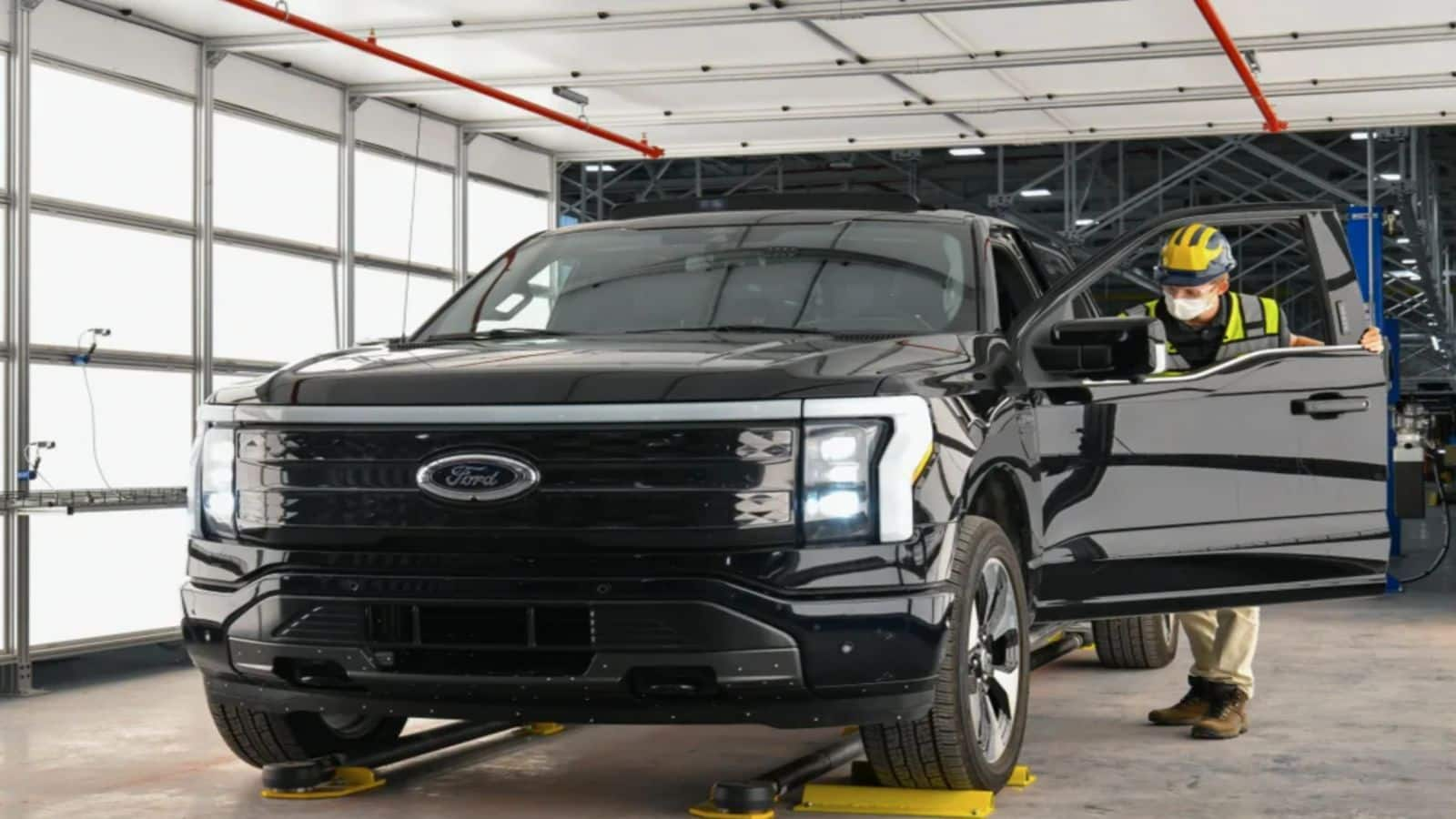
Ford delays production of next-gen electric three-row SUV to 2027
What's the story
Ford has delayed the production of its upcoming electric three-row SUV until 2027.
The unnamed vehicle was initially set for production in 2025 at Ford's Oakville, Ontario plant, which is currently transitioning to electric vehicles (EVs).
The company said the three-row SUV market is yet to evolve and hence it is delaying its model.
Market analysis
Limited three-row electric SUV options in the market
Despite over 100 electric models available in the US, only a few are three-row SUVs, a category favored by families.
The limited options currently include the Tesla Model X, Rivian R1S, Kia EV9, and select models of the Tesla Model Y.
Ford believes that delaying their model's production will allow this consumer market to expand and leverage emerging battery technology for improved durability and value.
Production shift
Ford's next-gen electric truck production also delayed
Ford has also announced a postponement in the production of its next-generation electric truck, codenamed "T3," until 2026. It was originally scheduled for 2025.
The manufacturing will take place at the BlueOval City Campus in Tennessee, which is still under construction.
This facility is being equipped with a paint shop and nearly 4,000 tons of stamping equipment to produce sheet metal stampings for Ford's upcoming all-new electric truck.
Ongoing development
Future EVs continue development despite delays
Despite these production delays for next-generation EVs, Ford's next-to-next generation of EVs continue to be developed at the company's skunkworks lab in California.
Led by ex-Tesla designer Alan Clarke, the team is working on a smaller, cost-effective, profitable, flexible EV platform that can support multiple vehicles at high volumes.
The delayed SUV and electric truck were intended to be part of Ford's second wave of EVs following its first-gen Mustang Mach-E, F-150 Lightning, and E-Transit van.
Financial impact
Ford's reported loss and spending strategy
Ford's decision to delay its EV production follows a reported loss of $1.6 billion in the last quarter of 2023 from its Model e unit, which oversees EVs and software products.
The company has decided to slow its spending on EVs to better align with customer demand.
Despite this setback, Ford's first quarter sales figures for 2024 showed a significant increase in hybrid vehicle sales, with 38,421 units sold in Q1 2024, representing a 42% increase compared to Q1 2023.
Hybrid strategy
Ford plans to offer hybrid versions of all models
In line with the increasing demand for hybrid vehicles, Ford has announced plans to offer hybrid versions of every model it sells by the end of the decade.
This strategy aligns with consumer preferences for hybrid cars due to their affordability and fuel economy.
Ford's shift toward hybrids mirrors similar moves by other major automakers like General Motors and Mercedes-Benz, who have also delayed their electric car plans due to challenges in producing and selling electric cars profitably.